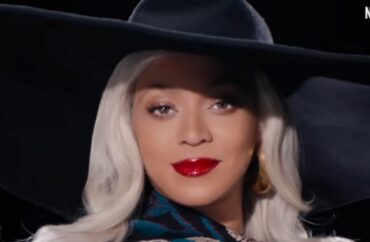
‘Queer reframings’ of bluegrass music among the academic topics to be discussed this weekend
Have you ever pondered “queerness” in country music? What about “black imaginative freedom”?
If not, there is still time to hustle over to the University of Chicago’s “Country Music as Theory: Intersections & Implications For the Humanities and Social Science,” conference, going on this weekend.
The conference “will convene scholars of country and adjacent sounds, histories, geographies, and materialities from diverse disciplines.”
The scholars will “work both towards an understanding of country music’s complexity and underexamined corners as well as its place in and potential for contemporary theory and scholarship,” according to an event description.
The conference, which runs today and tomorrow, includes not one, but two discussions about Beyoncé’s (pictured) country music album “Cowboy Carter.”
DePaul University Professor Francesca Royster will speak today on the album and how it relates to “Mobility and the Unfinished Dream of Black Imaginative Freedom.”
Her background is in English and “Critical Ethnic Studies,” according to her school bio.
“At DePaul she teaches courses on African American Literature, Queer Writers of Color and Writing About Music,” according to her bio. “She’s written creative and scholarly work on Shakespeare, Black country music performers and fans, Prince, Beyoncé, Tracy Chapman, queer utopias and chosen family, among other topics.”
But if that is not enough, attendees can also hear a presentation Saturday on “Cowboy Carter and Beyoncé’s Legacy-Building Project.”
Emily Roberts will also discuss “Queer Reframings of Nostalgia in Bluegrass Lyricism,” during another panel discussion.
She is a doctoral candidate at UChicago who studies “ethnomusicology,” according to her Bluesky bio.
Academics have regularly sought to view country music through a liberal ideological lens.
For example, some professors criticized country music star Jason Aldean’s anti-riot song “Try That In a Small Town” for having “coded” and “implicitly anti-Black” messages, as The College Fix previously reported.
As The Fix reported in 2023:
Hunter College’s Philip Ewell, a music theory professor who earlier this year called his black Communist father a “racist” for admiring classic white composers like Beethoven and Bach, said Aldean’s song is “part of a phenomenon of subtle yet unmistakable ‘anti-Blackness.’
…“[I]t’s just something that kind of comes out in culture, anti-Blackness,” Ewell, who researches “race studies in music theory” among other topics, said. “Because it’s part of the founding of our country. We shouldn’t run away from that simple fact.”
The song is also a “white nationalist call for vigilante violence presented as [a] benevolent…small-town community protecting its values,” according to Austin Peay State University Professor Minoa Uffelman.
Mississippi State University Professor Braden Leap has also argued country music “facilitate[s] the reproduction of racial and gender inequalities,” as previously reported by The Fix.
The UChicago panel also includes a discussion about “Quare Affects.”
The term “quare” refers to “queer” racial minorities.
MORE: Truman Scholars overwhelmingly liberal for 11th year in a row
IMAGE CAPTION AND CREDIT: Singer Beyonce in a promotional video; Beyonce/YouTube/NetFlix
Like The College Fix on Facebook / Follow us on Twitter







Please join the conversation about our stories on Facebook, Twitter, Instagram, Reddit, MeWe, Rumble, Gab, Minds and Gettr.